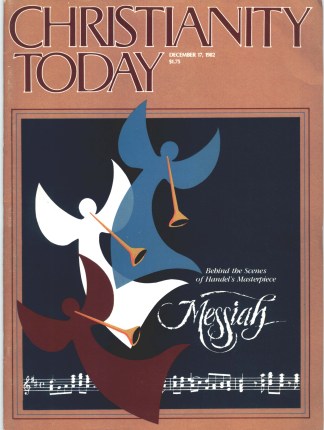All work ethic and no play ethic makes theologians dull scholars.
From Augustine to the present, Christians have often been suspicious of play. In our contemporary situation, however, where work gravitates toward the extremes of ulcers or boredom, play is being recognized by some Christians as one possibility for rediscovering their humanity. In a world that is commonly objectivized and routinized, play offers freedom to the human spirit. When the richness of play (from recreational activity to the arts) is made increasingly available and people are finding pleasure, meaning, and power within such experiences, Christian theology is challenged to reassess its suspicions concerning play.
Is there an alternative both to the traditional work ethic that has dominated Christian thought and to the hedonism and narcissism that characterizes much contemporary play discussion?
Some have written on this topic what might be labeled “pop theology.” In the last 20 years we have had theologies of secularity, of revolution, of process, of human potential. Each avant-garde trend has raised important issues, but all have proven ephemeral, including theologies of play. Too often they have mistakenly baptized current opinion and made it identical with the Christian faith.
Theologians of play have tended to fall into one of two cultural traps. Some, like Jürgen Moltmann, have included play within their work agendas of political liberation—within, that is, their updated work ethic. Play has been understood as both that proleptic experience of the future that is in God’s hands and our mission of liberation in behalf of that future. We are to work at our play for the sake of the kingdom.
Others, like Sam Keen, have reacted against such extrinsic goals. Their new set of rules would make self-expression and fulfillment the order of the day. Recognizing the disease of Homo Faber (the person as worker), Keen would have us believe that only by first playing in one’s own garden can an individual be free. One suspects, however, that such advice reduces ultimately to “eat, drink, and be merry, for tomorrow we die.”
Whether “play as politics” or “play as total ideology,” the result has always been to reduce play to something less than itself. Given the central place of play in the lives of all people, however, it is incumbent on the church to develop a more adequate theology of play.
A possible starting point is C. S. Lewis’s autobiographical reflections, Surprised by Joy (1955). Lewis describes several play experiences of his youth that pointed him to something beyond the ordinary horizons of the world. As he gazed at a toy garden landscape in a biscuit tin, when he smelled a flowering current bush, and while he read George Macdonald’s
Phantastes, his imagination was baptized. Moreover, having been surprised once by joy through his play, Lewis was open for other, more definitive experiences of joy—which culminated in his personal encounter with Jesus Christ.
Play should not simply be understood as one form of pre-evangelism, however. It can be that—but it is also more, as a sensitive reading of the biblical text shows. Play, according to Scripture, is one God-given expression of our humanity. It is, along with work, part of humankind’s intended rhythm.
Such a viewpoint concerning play (and work) is heard in the biblical discussion of Sabbath rest. It is basic to the advice offered in Ecclesiastes. It is pervasive in the sexuality of the Song of Songs. It is played out in such Israelite practices as festival, dance, feasting, and providing hospitality to travelers. It is even central to Jesus’ pattern of friendships.
Too often the church has ignored this. We have questioned how such a “cynical” book as Ecclesiastes could find its way into the canon. We have mistakenly interpreted the Song of Songs to be chiefly about God’s love for his people. We have limited the Sabbath to that necessary “pause that refreshes,” failing to understand its prior rationale as reflecting the pattern of God himself. We have overlooked the importance to Jesus of simple friendship, interpreting acts of kind regard for him solely in terms of his role as savior. In all of these ways we have misunderstood the biblical record and have failed to let Scripture speak authoritatively to us concerning our need to play.
Dietrich Bonhoeffer, writing from out of the horror of his World War II prison cell, and recognizing full well the serious work he was committed to (the Resistance Movement), nevertheless had this to say concerning play: “I wonder whether it is possible … to regain the idea of the Church as providing an understanding of the area of freedom (art, education, friendship, play) so that Kierkegaard’s ‘aesthetic existence’ would not be banished from the Church’s sphere, but would be reestablished within it?”
His question remains as relevant today as when it was written. How then shall we play?
Dr. Johnston is dean of North Park Theological Seminary, Chicago, Illinois, and associate professor of theology and culture.









